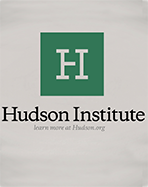European Russophobia and Europe’s Rejection of Peace: A Two-Century Failure
Europe has repeatedly rejected peace with Russia at moments when a negotiated settlement was available, and those rejections have proven profoundly self-defeating. Read more
 The Islamic State’s (IS) emergence—with its control of territory, social media proficiency, and unprecedented ability to mobilize supporters—threatened al-Qaeda’s position of dominance within the global jihadist movement. For a time, the majority of analysts believed that IS would eclipse al-Qaeda, if it had not done so already, and that IS’s rise threatened to make al-Qaeda irrelevant or even defunct. The conventional wisdom held that al-Qaeda could only remain relevant by either carrying out terrorist attacks abroad or else trying to replicate IS’s brutality and ostentatious growth model.
The Islamic State’s (IS) emergence—with its control of territory, social media proficiency, and unprecedented ability to mobilize supporters—threatened al-Qaeda’s position of dominance within the global jihadist movement. For a time, the majority of analysts believed that IS would eclipse al-Qaeda, if it had not done so already, and that IS’s rise threatened to make al-Qaeda irrelevant or even defunct. The conventional wisdom held that al-Qaeda could only remain relevant by either carrying out terrorist attacks abroad or else trying to replicate IS’s brutality and ostentatious growth model.
But al-Qaeda defied conventional wisdom. It not only survived the challenge posed by IS, but emerged stronger by pursuing a strategy of deliberate yet low-key growth. Al-Qaeda was able to “rebrand” itself by contrasting with IS’s over-the-top shows of brutality, and thus gain more room to operate within the region. This article maps the evolution of al-Qaeda’s model for growth over the past decade, and illustrates how the group has repeatedly overcome challenges through a combination of shrewd planning and strategic patience.
The article's full-text is available here.